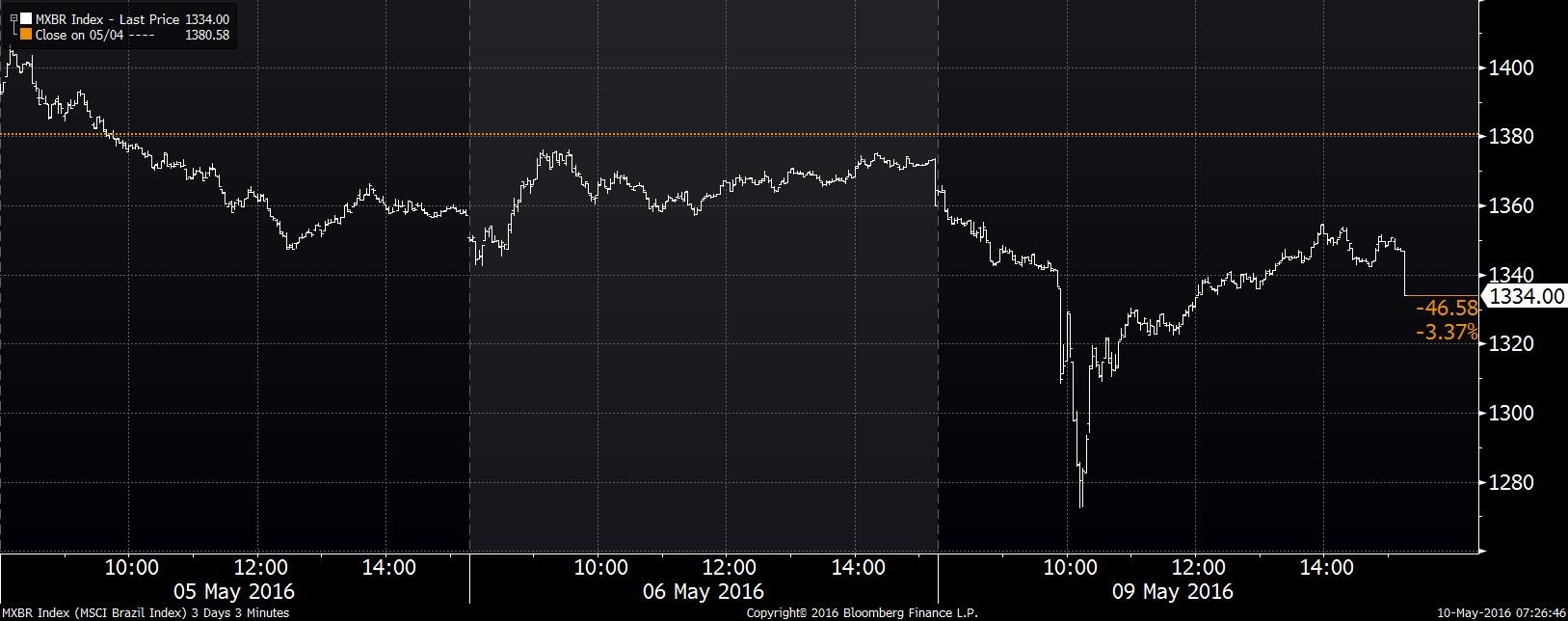Daily Comment (May 10, 2016)
by Bill O’Grady and Kaisa Stucke
[Posted: 9:30 AM EDT] Although we are seeing higher equity markets in many parts of the world, there is a palpable air of uncertainty. Take yesterday’s market action in Brazil. The leader of the lower house in the Brazilian legislature announced yesterday that last month’s impeachment vote should be annulled. Then, in the dead of night, he revoked the call. It isn’t clear what Waldir Maranhao was trying to accomplish. According to reports, this little known member of the legislature is under investigation himself, dealing with corruption charges. Market action yesterday was certainly interesting.
First, the Brazilian real (BRL) depreciated.
This is an intraday chart showing the BRL/USD exchange rate; it measures how many BRL are required to buy a dollar, so a rising price represents a weaker currency. When the news broke, the currency plunged.
So did the Brazilian equity market.
This is a chart of the Brazilian MSCI index in USD terms. Note the sharp drop. When Maranhao reversed his position on impeachment, the market rallied but did not return to earlier highs. This market action demonstrates the degree of sensitivity that Brazil’s financial markets have toward the impeachment process. The markets have been betting that a new government will be more market friendly and Rousseff’s ouster will be bullish. Although this may be true, we suspect that if impeachment occurs, Brazil’s financial markets will suffer a setback for two reasons. First, the good news from impeachment will already be fully discounted. Second, a new government will still face a difficult environment and any new government’s ability to improve conditions will be limited. In fact, the best outcome for Brazil would be a debt-fueled boom in China, which probably isn’t likely.
Yesterday, an unnamed Chinese official criticized the extended use of debt in fueling China’s growth. Although this is a legitimate criticism, reducing debt growth will almost certainly lead to a dramatic drop in growth. There is growing speculation that when the 19th party congress meets in 2017 that Li Keqiang, the current premier, may be replaced by Wang Qishan. In China, the premier (second in command) has the economy mandate, although Chairman Xi has been unusually active in economic policy for a Chinese head of state and leader of the CPC. Wang is currently head of the Commission on Discipline Inspection, the body that has been conducting the purges. Wang is an accomplished financier, with experience in banking. He is also one of Chairman Xi’s most trusted advisors. It may be that Li will take the blame for weaker growth and market turmoil, allowing Xi to put a loyalist in charge of the economy.




